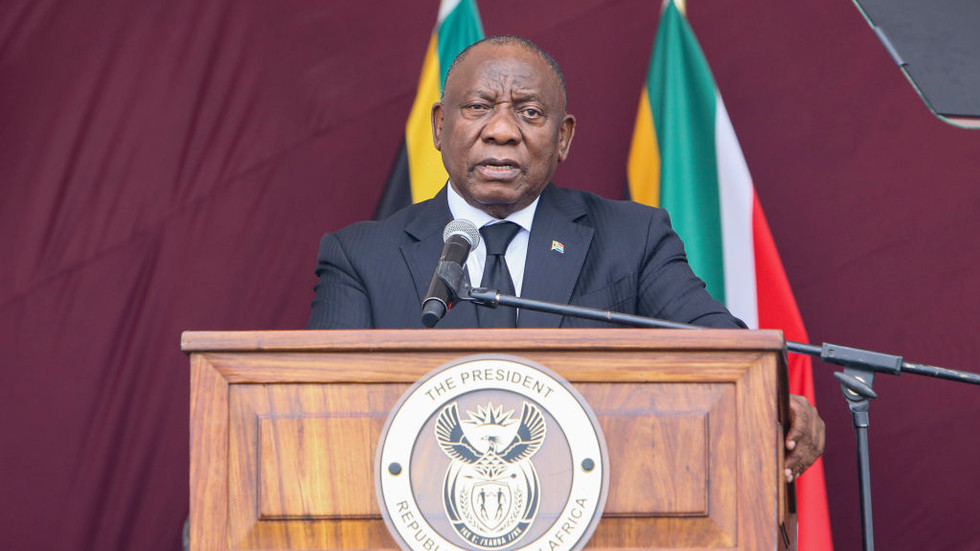US Defense Secretary Lloyd Austin on Saturday said a constant dialogue with China and its neighbors was needed to prevent an escalation of current tensions in the Asia-Pacific region, while underscoring Washington's regional security commitment.
Austin's comments at the Shangri-La Dialogue security forum in Singapore come as the US deepens defense ties with several Asian-Pacific countries in the face of growing territorial assertion by China.
The conference is taking place a week after China carried out military drills around the self-ruled island of Taiwan, which Beijing claims as its own, as a "punishment" for comments seen as advocating separatism made in the inauguration speech of new Taiwanese President Lai Ching-te.
China and the Philippines at odds over the South China Sea
What did Austin say?
"Every conversation is not going to be a happy conversation. But it is important that we continue to talk to each other," Austin told the conference, adding that "a war or a fight with China is neither imminent, in my view, or unavoidable."
However, Austin did place great emphasis on Washington's commitment to security in the region, reflected in a growing number of defense partnerships.
He said there had been a "new convergence around nearly all aspects of security" in the Asia-Pacific over the past three years.
"This new convergence is producing a stronger, more resilient and more capable network of partnerships and that is defining a new era of security in the Indo-Pacific," Austin told the forum.
"Let me be clear: The United States can be secure only if Asia is secure," Austin said. "That's why the United States has long maintained our presence in this region."
"We are all in and we're not going anywhere," Austin said.
He also offered reassurance to several countries in the region that fear the wars in Ukraine and Gaza could be taking Washington's attention.
"Despite these historic clashes in Europe and the Middle East, the Indo-Pacific has remained our priority theatre of operations," Austin said in his speech.
How has China responded?
In response to Austin's comments, Chinese Lieutenant General Jing Jianfeng accused the United States of seeking to build "an Asia-Pacific version of NATO."
He went on to call the US the "greatest challenge to regional peace and stability."
Jing, who is the deputy chief of the Joint Staff Department of China's Central Military Commission, said the the US Indo-Pacific strategy was intended "to create division, provoke confrontation and undermine stability."
"It only serves the selfish geopolitical interests of the US and runs counter to the trend of history and the shared aspirations of regional countries for peace, development and win-win cooperation," Jing said.
Amid the US-Chinese friction, Austin met with his Chinese counterpart Dong Jun on Friday for the first substantive face-to-face talks between the two countries' defense chiefs in 18 months.
 Austin and Dong met on Friday for talksImage: DoD/Chad J. McNeeley/Handout/REUTERS
Austin and Dong met on Friday for talksImage: DoD/Chad J. McNeeley/Handout/REUTERSZelenskyy speech on the agenda
Defense officials at the conference have also been discussing security issues related to the wars in Ukraine and Gaza.
Ukrainian President Volodymyr Zelenskyy, who arrived in Singapore on Saturday, is to address the meeting in person on Sunday, the final day of the three-day conference, according to organizers.
Zelenskyy will seek to rally support for Kyiv as Russia presses on with its full-scale, unprovoked invasion of its neighbor, with a new offensive in Ukraine's northeast leading to recent territorial gains.
His appearance comes after theUS decided to lift some restrictions on using US-provided weapons for strikes inside Russia, with Germany following suit in allowing its weapons to be used in some cross-border attacks.
Zelenskyy has hailed the decisions as a "step forward."
tj/wd (Reuters, dpa, AFP)

 5 months ago
23
5 months ago
23








